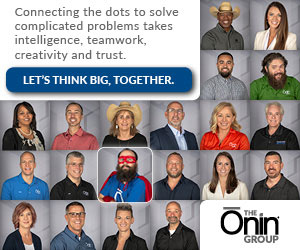Navigating your workload when the day feels too short can be daunting. Despite giving your best effort, you might not have enough time to complete your task list during work hours.
Your tasks might be beyond your title or skill level, or your assignments might be too much for one person to finish. This can lead to feelings of stress, frustration, and being overwhelmed, which can result in anxiety, depression, and burnout.
Although meeting deadlines is important, you must also protect your health. Overworking yourself can adversely impact your physical and mental wellness. As a result, you must stay productive while maintaining work-life boundaries.
Signs Your Workload Needs Improvement
These signs indicate your workload should be modified:
- You are unsure how to prioritize your tasks.
- Focusing on your tasks is challenging.
- Your productivity is slowing.
- Tasks remain incomplete despite your consistent efforts to finish them.
- Your work-life structure heavily focuses on work.
- You have limited time for non-work activities.
- Optimism about reaching your goals is fading away.
- Enthusiasm for your job is waning.
Methods to Address Your Workload
You can choose among these methods to address your workload:
- Delegate your tasks. Ask your team members to take on tasks that fit their skills and strengths.
- Decline additional assignments. Mention the projects you have and that you need time to effectively complete them.
- Request a deadline extension. You might accomplish more with a later deadline.
- Ask your colleagues for advice. They might be experiencing similar challenges and offer suggestions for improvement.
- Talk with your supervisor. Find out if they can reassign work or suggest strategies to improve your workflow.
- Maintain work-life boundaries. Protect your time and energy outside of work hours. For instance, set a boundary that you log out of your email at 6 pm and respond to your messages the next workday.
Tips to Navigate Your Workload
Implement these tips to prioritize, delegate, and efficiently manage tasks while navigating your workload:
Consider Your Work-Life Structure
Think about what you want your work time and personal time to look like. Then, set specific, measurable, attainable, relevant, time-bound (SMART) goals to maintain this structure.
For instance, if you want to exercise before work, leave the job site by 5:30 pm, and get more sleep, you could develop goals to reach these objectives. Then, you can schedule and complete your tasks to align with your goals.
Strengthen Your Time-Management Skills
Improve efficiency in your workday structure to more effectively reach your priorities and deadlines. For instance, minimize distractions by focusing solely on your tasks during work hours and setting aside specific times for breaks and personal activities.
Finish each scheduled task before moving on to the next one. Since the brain cannot focus on more than one thing at a time, multitasking requires additional time to resume focus between tasks. As a result, multitasking reduces efficiency and increases errors. Therefore, more time is needed to correct the errors, which could lead to missed deadlines.
Prioritize Your Tasks
List each task with its due date and time needed for completion. Then prioritize your tasks in order of importance. Begin with the task with the nearest deadline and repeat the pattern.
Focus on each task until completion. Then, cross off the task and move to the next one.
Schedule Your Tasks
Break down your workload into tasks, then schedule each task at an appropriate time. For instance, you might schedule more difficult tasks in the morning and easier tasks in the afternoon. Or, you could schedule your most urgent tasks right away so they are finished before your less urgent tasks.
Developing a daily schedule lets you know which task to focus on at a given time. This process supports efficiency and accuracy in your work.
Take Breaks
Walk away from your workstation at regular intervals throughout the day. Include 10- to 15-minute breaks every few hours and an hour for lunch.
Engage in relaxing activities during your breaks:
- Eat healthy foods
- Drink water
- Take a walk
- Stretch
- Practice relaxation techniques
- Read a book
- Listen to music
- Talk with a coworker who is on break
The brain needs time to rest to maintain focus and creativity. You can come back to your tasks ready to produce.
Use All of Your Paid Time Off
Schedule time away from work at regular intervals. Whether you plan a day trip, spend a long weekend at home, or take an extended vacation, you need time for your family, friends, and personal interests.
Taking time away from work lets you relax and rejuvenate. You can return to your tasks focused and ready to contribute.
Partner with a Capable Staffing Agency
If you find yourself struggling to keep up with your many duties, partnering with a capable staffing agency could be the solution. A specialized staffing agency can reduce the time and money needed for hiring, allowing you more time to navigate your workload.
Fast Hiring
A staffing agency sources, screens, interviews, and tests candidates to verify their education, skills, experiences, and qualifications. Next, an agency recruiter works closely with you to thoroughly understand your hiring needs, qualifications, expectations, culture, and other relevant details. Then, the recruiter schedules interviews between a few qualified candidates and you.
You interview the candidates, extend a job offer, and negotiate with the recruiter on the candidate’s behalf. The recruiter assists with onboarding and regularly follows up to ensure complete satisfaction.
Lower Risk
Partnering with a staffing agency minimizes the risk of a bad hire. For instance, because the candidates come vetted, they should fit with the role, team, and company culture. As a result, the hired candidate should quickly assimilate and begin producing. However, if the candidate does not work out, you can request a replacement at no cost.
Reduced Workload
Outsourcing the hiring process to an experienced staffing agency frees up time for you to focus on higher-level activities. As a result, you can more effectively navigate your workload.






